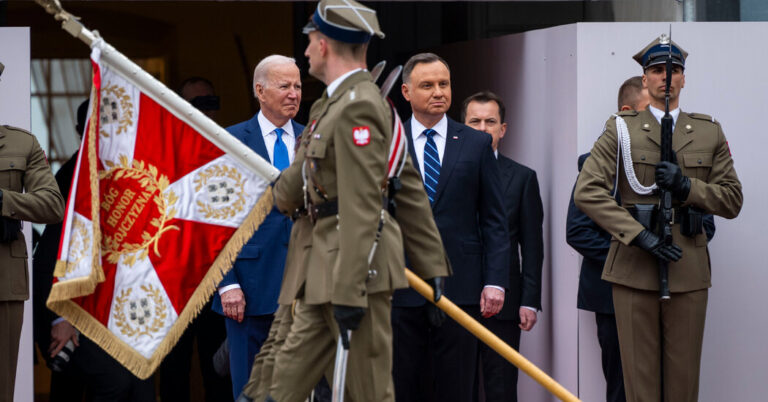U.S. Ready to Back U.N. Resolution to Allow More Aid Into Gaza
Health authorities in Gaza say that about 20,000 people, most of them women and children, have been killed in Israel’s campaign, and the U.N. has warned of a humanitarian disaster as the territory’s civic and health care infrastructure collapses.
U.N. officials said this month that nearly 60 percent of people in Gaza were on the verge of starvation, and they issued a new warning on Thursday that there was a “risk of famine” in the territory within the next six months.
The United Arab Emirates, the only Arab country currently serving on the 15-member Council, initially put forth a resolution that called for a “cessation of hostilities.” Later, it was reworked to call for “extended humanitarian pauses and corridors” to speed up the delivery of aid. The resolution also called for the release of the hostages in Gaza.
Israel has come under heightened internal pressure to quickly reach a deal that could free the hostages still being held in Gaza, particularly after three of them were mistakenly shot by Israeli soldiers last week. Israel says 129 hostages are still being held by Hamas.
Working through Egyptian and Qatari mediators, Israel and Hamas have been engaging in fragile negotiations over a possible truce and hostage deal.
But they have not reached any agreement since a weeklong truce collapsed on Dec. 1. During that temporary cease-fire, more than 100 people kidnapped during the Oct. 7 attack were freed in exchange for more than 200 Palestinians imprisoned or detained in Israel. The temporary truce also allowed more aid to flow into Gaza.
Since then, humanitarian aid has trickled through Rafah, a main border crossing between Egypt and Gaza, after a complicated screening system in which trucks have to first travel to Israel for inspection, then return to Egypt and cross into Gaza.
As the Council debated, Israeli officials sent mixed signals on Thursday about their vision for the future of the Gaza Strip, suggesting that Israel might be amenable to a reformed Palestinian Authority governing the territory, but later saying that the government’s stance had been misinterpreted.
Questions surrounding the future governance of Gaza have fueled tensions between President Biden and Prime Minister Benjamin Netanyahu of Israel.
Mr. Biden has said that the Palestinian Authority, which governs part of the Israeli-occupied West Bank, should also govern Gaza after the war as a step toward a Palestinian state. Mr. Netanyahu has repeatedly ruled out allowing the authority to control Gaza and has said Israel must be responsible for security in Gaza for the foreseeable future.
Tzachi Hanegbi, Mr. Netanyahu’s national security adviser, appeared to soften that stance in a column published on Wednesday in Elaph, a Saudi-owned, Arabic-language news outlet.
“Israel acknowledges the international community’s and regional states’ desire to integrate the Palestinian Authority the day after Hamas,” he wrote. “We emphasize that this process will necessitate a fundamental reform of the Palestinian Authority.”
But in a briefing later, a senior Israeli official said that the column had been misinterpreted, and that the government’s view had not changed.
“We are aware of the fact that everybody would really like the Palestinian Authority to be part of the solution of Gaza on the day after, but it’s not possible with the way it is now,” the senior official said, speaking on condition of anonymity. He said the authority cannot be a partner because it does not “participate in a vision of reconciliation.”
Roni Caryn Rabin contributed reporting.
Check out our Latest News and Follow us at Facebook
Original Source







